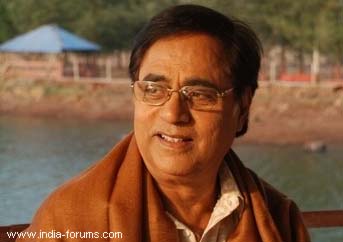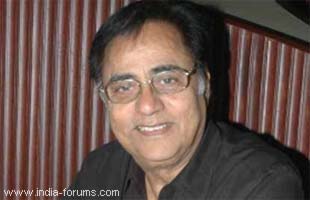Page
of
1

Mumbai, Oct 10 Renowned singer Jagjit Singh, known as much for his ghazals and bhajans as for his work in Hindi cinema, died here Monday after a brain haemorrhage. He was 70.
Singh, who breathed his last at 8 a.m., was admitted to Mumbai's Lilavati Hospital on Sep 23 after he suffered brain haemorrhage. He is survived by his wife Chitra Singh.
A Padma Bhushan award recipient, Singh has sung from many popular Hindi films. He had also sung in several languages, including Urdu, Punjabi, Gujarati and Nepali.
Singh's career boasted a repertoire comprising 50 albums.
He gave voice to classic numbers like 'Kal chaudhavin ki raat', 'Honthon se chhoo lo tum', 'Koi ye kaise bataaye', 'Woh kaagaz ki kashti', 'Chitthi Na Koi Sandesh', 'Tum itna jo muskura rahe ho', 'Yeh daulat bhi le lo, yeh shohrat bhi le lo', 'Tumko dekha toh ye khayal aaya', 'Jhuki jhuki si nazar', 'Shaam se aankh mein namin si hai', 'Badi nazuk hai', 'Hoshwaalon ko khabar kya' and 'Kiska chehra'.
Born on Feb 8, 1941 in Sri Ganganagar, Rajasthan, Singh had four sisters and two brothers and was known as Jeet by his family.
He was the first Indian composer and, together with wife Chitra, the first recording artist in the history of Indian music to use digital multi-track recording -- for the album 'Beyond Time' (1987).
Singh also voiced his concern over the politicisation of arts and culture in India and the lack of support for practitioners of India's traditional art forms, particularly folk artists and musicians.


Srinagar, Oct 10 As the voice that enthralled thousands of ghazal fans fell silent Monday morning, people in Jammu and Kashmir remembered Jagjit Singh as someone with a 'rare gift' and someone who took the ghazal out of the literary idiom and presented it to the masses.
The ghazal king died in Mumbai after a brain haemorrhage. He was of 70.
Shabir Ahmad, an Urdu teacher, said the likes of Jagjit Singh might not be born for ages.
'There are only three big names who have sung Ghalib and helped him reach the masses. These are K.L. Sehgal, Talat Mehmood and Jagjit Singh,' he said.
'Jagjit Singh kept the tradition of ghazal singing alive in India after Begum Akhtar. While Begum Akhtar sang for the connoisseurs among ghazal lovers, Jagjit took the ghazal out of the literary idiom and made it common place,' he said.
Mehraj-ud-Din, 34, a fruit vendor in Residency Road area of Srinagar city, concurred.
'I understand Urdu but not the finer points of ghazal singing. However, never once have I felt he isn't singing for me when I hear him. I am deeply shocked at his death,' Mehraj-ud-Din said.
Shabir Ahmad said: 'His voice was as soft as velvet. He never resorted to a high pitch and never played any classical acrobatics. Yet, in his simplest rendering of the Urdu ghazal, Jagjit excelled. He definitely stands second only to Mehdi Hassan in the sub-continent in ghazal singing.'
Farooq Nazki, a renowned Kashmiri poet and critic, said: 'It is a great loss to Indian light classical music. But I am sure his rendering of Urdu ghazals will be remembered forever.'
Jagjit Singh visited the Kashmir Valley many times for concerts. He last sang for his admirers this June in the auditorium of the Kashmir University.
'Once he started with his famous ghazal 'Who Kagaz Ki Kisti, Who Barish Ka Pani', everybody in the auditorium was swinging with the poet. He was a phenomenon nobody could resist,' said Fayaz Ahmad, 24, a student who attended the concert.
Abid, 42, who drove 80 km from north Kashmir's Sonamarg hill station to be part of the concert, said: 'Once you heard him, it hardly mattered whether you understood the nuances of ghazal singing or not. He would deliver his words straight into your heart.'
Jagjit Singh would always joke during his concerts to make his audience more participative. This has now become a trend in Urdu ghazal singing in South Asia.
'One did not have to be a scholar to understand a ghazal once Jagjit sang it. He had the divine gift of carrying every type of audience with him. This was proved when he sang in London and other places outside India, ' said Habibullah Dar, 65, a retired school teacher.
'Only some of his western audiences would understand the words, but everybody would be with him. That is a rare gift and it will be decades before we have anyone like of him,' said Habibullah.
comment:
p_commentcount